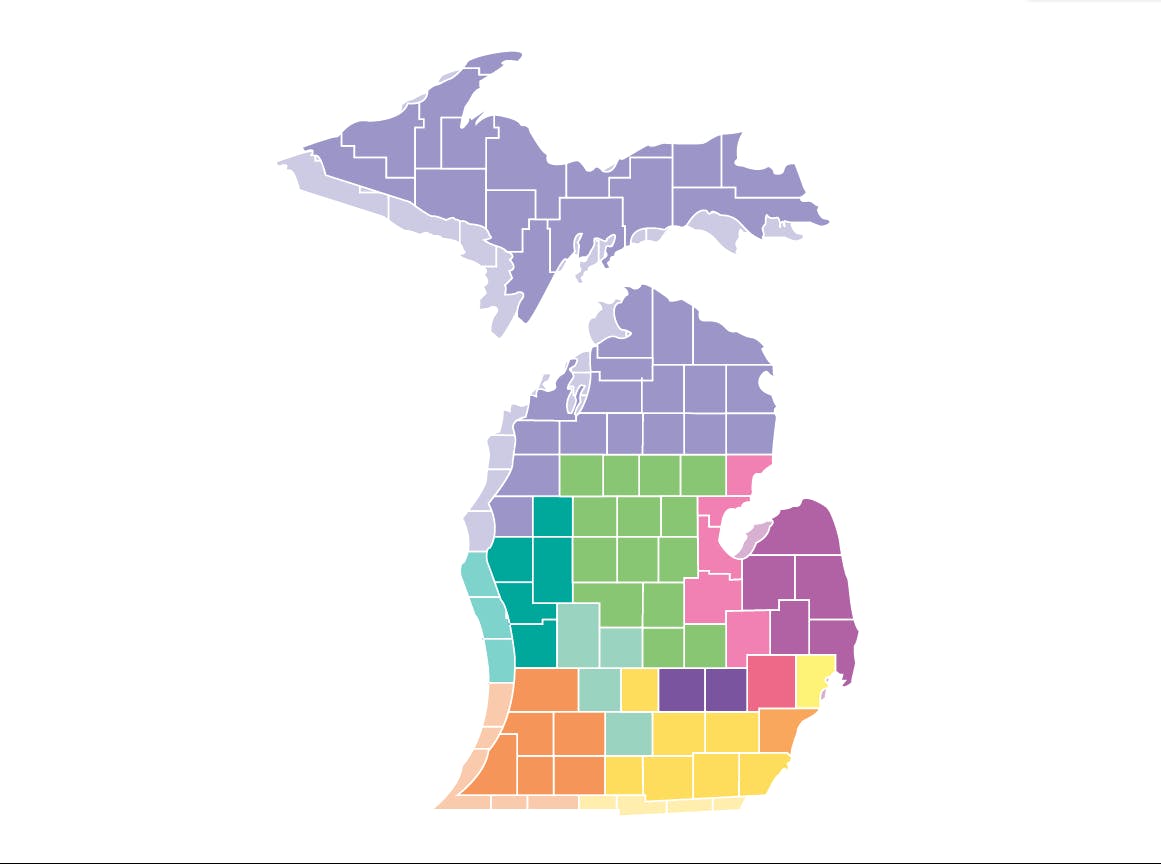All eyes are on Michigan as the newly created Michigan Independent Citizens Redistricting Commission, or MICRC, is drawing new district boundaries following the Voters Not Politicians ballot proposal in the 2018 midterm election.
The ballot proposal originated in an effort to end gerrymandering and promote fairly drawn electoral districts. According to Voters Not Politicians, 61% of Michigan citizens voted in favor of the proposal.
The term "gerrymandering" refers to the manipulation of congressional district boundaries to favor a particular party. Many district boundaries in Michigan intentionally weave around specific homes, neighborhoods and streets, as to include voters with a particular ideology in one voting district. While districts may appear to be drawn randomly, there is a method behind those boundaries.
"There is a long-standing history of gerrymandering in American politics,” Democratic Lansing State Rep. Sarah Anthony said. “Ultimately, gerrymandering has rigged the game in terms of silencing voters, and it has really allowed elected officials to act without much accountability, and draw districts in their own favor.”
A 2018 report by the Citizens Research Council of Michigan found that “a handful of tests show that Michigan’s maps are beyond the threshold for what is considered gerrymandering, and show other signs that would indicate gerrymandering occurred.”
The report looked at three tests: Michigan’s efficiency gap for Congressional and Legislative Districts, Michigan’s mean difference for Congressional and Legislative Districts and Michigan’s T-Test results from 1998 to 2016.
A t-test is a method in statistics to determine the probability that groups will be randomly assigned from the same population.
“I think our report quantifies that yes, in fact, Michigan is gerrymandered,” MICRC President Eric Lupher told Michigan Public Radio. “It’s not just sour grapes that one party has won consistently, and the other has been on the outside looking in. The game is being stacked against one of the players in the game, and that’s significant.”
Following the passing of the Voters Not Politicians ballot proposal, MICRC was created and includes 13 commissioners — four from the Democratic Party, four from the Republican Party and five that are not affiliated with either major party — that were all selected from a lottery.
The commission counts on data from the 2020 federal census and plans to have the redistricting boundaries completed by Nov. 1. The new boundaries will be used in the 2022 primary and general elections.
To ensure the boundaries are fair and equal, the commission must explain in a report how it meets all the criteria of the amendment.
According to the Princeton Gerrymandering Project, the commission “must follow all federal requirements, including the Voting Rights Act (VRA); be contiguous; respect communities of interest; not favor any party or incumbent; follow county, city, township lines; and be compact.”
The commission is also counting on the public’s input before the final versions are created. They must hold 10 public meetings before drawing the maps, and hold another five meetings to showcase the draft maps before they are officially adopted.
Anthony said she hopes that the commission is looking at district configurations through the lens of equity.
“What I mean by that is making sure low-income folks, people of color, marginalized communities, are not disproportionately impacted in a negative way,” Anthony said. “I think it’s really important to lots of people in our state that we’re looking at things through a lens that lifts everybody up and makes better lines for everyone.”
This article is part of our 2021 Summer Mail Home Issue. View the full digital issue here.
Support student media!
Please consider donating to The State News and help fund the future of journalism.
Discussion
Share and discuss “After a long history of gerrymandering, Michigan starts to take action with a redistricting commission” on social media.







